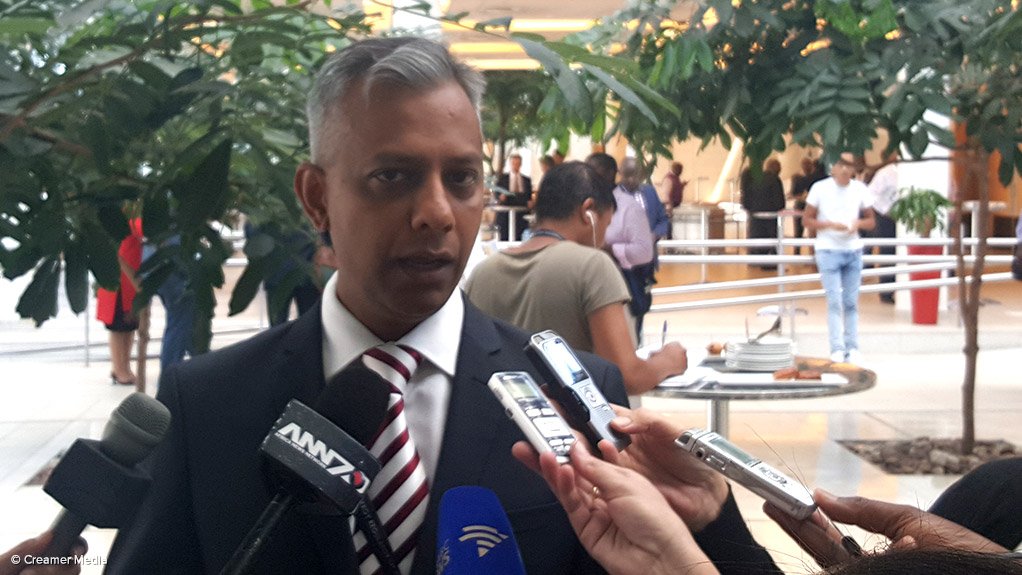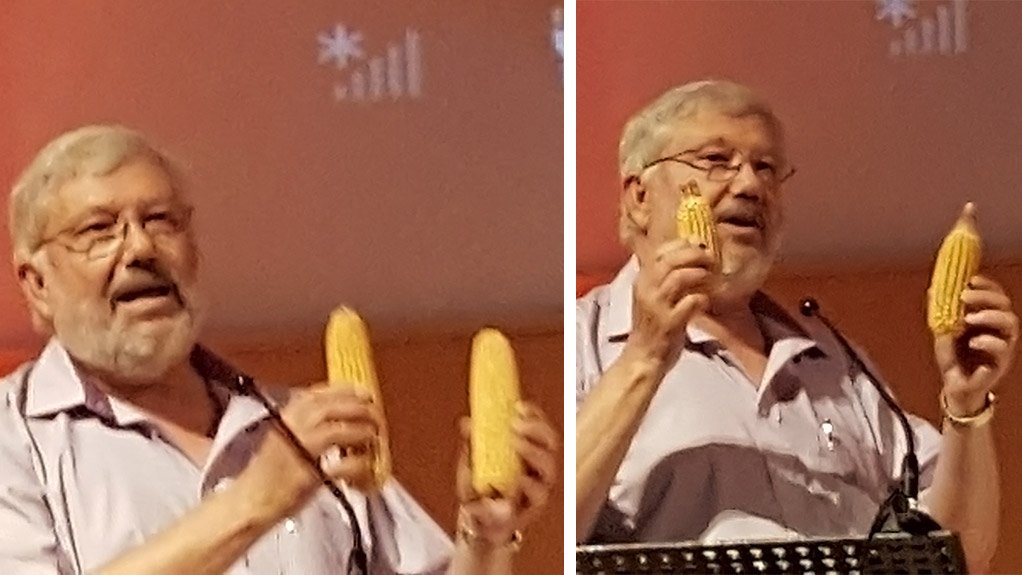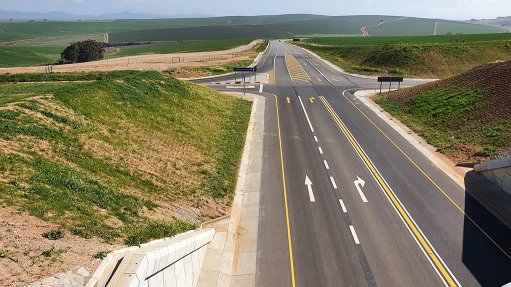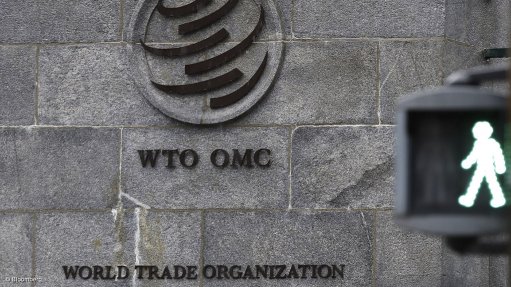Cape business says consumers should not pay for past Eskom mistakes



Eskom CFO Anoj Singh
Photo by Terence Creamer
BEFORE | AFTER Agri Western Cape CEO Carl Opperman shows the impact of load-shedding on maize yields.
Cape business came out in strong opposition to Eskom’s application for a R22.8-billion recoupment of cost and revenue variations in 2013/14 when compared with approved allocations under the third multiyear price determination (MYPD3).
In his presentation to the National Energy Regulator of South Africa (Nersa), which is presiding over hearings into the prudency of Eskom’s Regulatory Clearing Account (RCA) application to claw back R22.8-billion for the first year of the five-year MYPD3, Agri Western Cape CEO Carl Opperman warned that farmers would be hard pressed to absorb further increases.
At present, Eskom is allowed to increase tariffs by 8% for the 2016/17 financial year, but the tariff could rise to nearly 17% should the RCA application be fully approved.
However, Nersa has traditionally not granted Eskom its full request and the five panellists had used the first two days of the public hearings to raise serious questions about some of the amounts being sought by the utility.
“The effect of electricity costs will compound severely on the economic viability of wheat production,” Opperman warned, noting that drought conditions had already resulted in the Western Cape’s wheat production declining by 200 000 t last season, which represented a financial impact of R1-billion.
For the table grapes sector, where the current electricity cost per hectare was R14 000, or R255-million a year for the industry as a whole, any increase would result in electricity making up more than the current 6% of the total costs.
Opperman also offered a visual representation of the effect of load-shedding on maize yields by holding up corn produced in a season heavily impacted by rotational power cuts, which was distinctly smaller than corn cobs produced in a season unaffected by load-shedding.
“The effect is between 40% to 50% yield difference.”
Meanwhile, Cape Chamber of Commerce and Industry executive director Sid Peimar argued that Eskom’s over-estimation of demand during the period, as well as spending nearly 400% more than allocated on diesel to operate its open cycle gas turbines, raised serious questions about Eskom management and its ability to forecast.
“Our message is simple,” Peimar said. “First bring your costs under control before you ask business and the public for more money to pay for past mistakes.”
Peimar also described the reliance on tariff increases to keep Eskom afloat as “self-defeating”, as it would result in more and more consumers defecting from the grid.
However, Eskom CFO Anoj Singh stressed the legitimacy of the RCA application, arguing that the costs were incurred in the execution of its mandate to supply electricity.
He said the R8-billion extra spent on diesel had been incurred in the interests of avoiding the detrimental impact of load-shedding on the South African economy.
“The negative economic impact was minimised during this period with only three incidents of load curtailment and one incident of load-shedding for 13 hours.”
Eskom estimated the cost of that load-shedding episode to be only R24-million, which had been excluded from its revenue variance analysis.
NOT A TEST OF PERFECTION
The application, Singh added, was in compliance with the Nersa MYPD methodology and had been independently verified as such by Deloitte.
Eskom also asserted that prudency was not a test of perfection, but rather whether its actions were reasonable in the prevailing circumstances and without the benefit of hindsight.
Therefore, Singh called on Nersa to “consider the application in a balanced and constructive manner, taking into account all stakeholder needs”.
Nersa, which would continue with hearings until February 5, would make its determination on February 26.
Comments
Press Office
Announcements
What's On
Subscribe to improve your user experience...
Option 1 (equivalent of R125 a month):
Receive a weekly copy of Creamer Media's Engineering News & Mining Weekly magazine
(print copy for those in South Africa and e-magazine for those outside of South Africa)
Receive daily email newsletters
Access to full search results
Access archive of magazine back copies
Access to Projects in Progress
Access to ONE Research Report of your choice in PDF format
Option 2 (equivalent of R375 a month):
All benefits from Option 1
PLUS
Access to Creamer Media's Research Channel Africa for ALL Research Reports, in PDF format, on various industrial and mining sectors
including Electricity; Water; Energy Transition; Hydrogen; Roads, Rail and Ports; Coal; Gold; Platinum; Battery Metals; etc.
Already a subscriber?
Forgotten your password?
Receive weekly copy of Creamer Media's Engineering News & Mining Weekly magazine (print copy for those in South Africa and e-magazine for those outside of South Africa)
➕
Recieve daily email newsletters
➕
Access to full search results
➕
Access archive of magazine back copies
➕
Access to Projects in Progress
➕
Access to ONE Research Report of your choice in PDF format
RESEARCH CHANNEL AFRICA
R4500 (equivalent of R375 a month)
SUBSCRIBEAll benefits from Option 1
➕
Access to Creamer Media's Research Channel Africa for ALL Research Reports on various industrial and mining sectors, in PDF format, including on:
Electricity
➕
Water
➕
Energy Transition
➕
Hydrogen
➕
Roads, Rail and Ports
➕
Coal
➕
Gold
➕
Platinum
➕
Battery Metals
➕
etc.
Receive all benefits from Option 1 or Option 2 delivered to numerous people at your company
➕
Multiple User names and Passwords for simultaneous log-ins
➕
Intranet integration access to all in your organisation




















